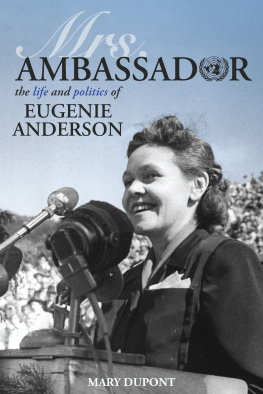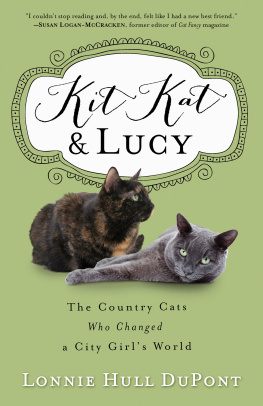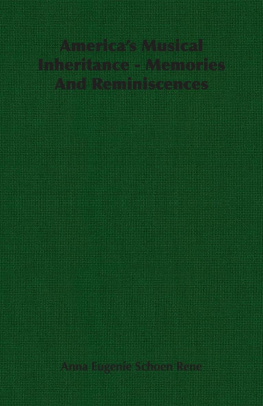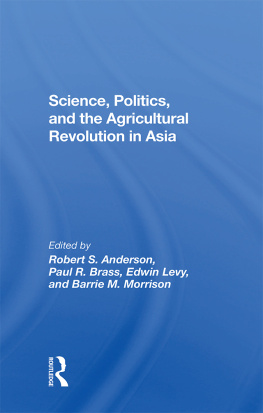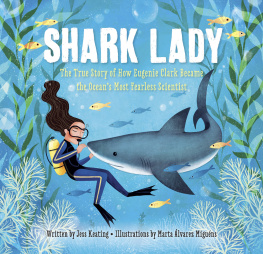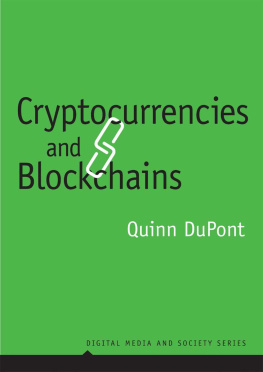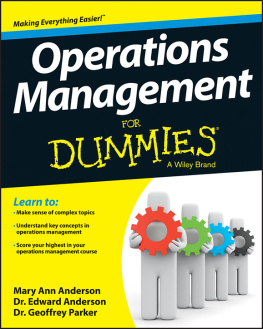Mary Dupont - Mrs. Ambassador: The Life and Politics of Eugenie Anderson
Here you can read online Mary Dupont - Mrs. Ambassador: The Life and Politics of Eugenie Anderson full text of the book (entire story) in english for free. Download pdf and epub, get meaning, cover and reviews about this ebook. year: 2019, publisher: Minnesota Historical Society Press, genre: Non-fiction / History. Description of the work, (preface) as well as reviews are available. Best literature library LitArk.com created for fans of good reading and offers a wide selection of genres:
Romance novel
Science fiction
Adventure
Detective
Science
History
Home and family
Prose
Art
Politics
Computer
Non-fiction
Religion
Business
Children
Humor
Choose a favorite category and find really read worthwhile books. Enjoy immersion in the world of imagination, feel the emotions of the characters or learn something new for yourself, make an fascinating discovery.
- Book:Mrs. Ambassador: The Life and Politics of Eugenie Anderson
- Author:
- Publisher:Minnesota Historical Society Press
- Genre:
- Year:2019
- Rating:5 / 5
- Favourites:Add to favourites
- Your mark:
- 100
- 1
- 2
- 3
- 4
- 5
Mrs. Ambassador: The Life and Politics of Eugenie Anderson: summary, description and annotation
We offer to read an annotation, description, summary or preface (depends on what the author of the book "Mrs. Ambassador: The Life and Politics of Eugenie Anderson" wrote himself). If you haven't found the necessary information about the book — write in the comments, we will try to find it.
Mary Dupont: author's other books
Who wrote Mrs. Ambassador: The Life and Politics of Eugenie Anderson? Find out the surname, the name of the author of the book and a list of all author's works by series.
Mrs. Ambassador: The Life and Politics of Eugenie Anderson — read online for free the complete book (whole text) full work
Below is the text of the book, divided by pages. System saving the place of the last page read, allows you to conveniently read the book "Mrs. Ambassador: The Life and Politics of Eugenie Anderson" online for free, without having to search again every time where you left off. Put a bookmark, and you can go to the page where you finished reading at any time.
Font size:
Interval:
Bookmark:

M rs.
AMBASSADOR
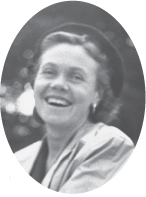
M rs.
AMBASSADOR
THE LIFE AND POLITICS OF
Eugenie Anderson
MARY DUPONT

The publication of this book was supported though a generous grant from the Eugenie M. Anderson Women in Public Affairs Fund.
Text copyright 2019 by Mary Dupont. Other materials copyright 2019 by the Minnesota Historical Society. All rights reserved. No part of this book may be used or reproduced in any manner whatsoever without written permission except in the case of brief quotations embodied in critical articles and reviews. For information, write to the Minnesota Historical Society Press, 345 Kellogg Blvd. W., St. Paul, MN 55102-1906.
mnhspress.org
The Minnesota Historical Society Press is a member of the Association of University Presses.
Manufactured in the United States of America
10 9 8 7 6 5 4 3 2 1
 The paper used in this publication meets the minimum requirements of the American National Standard for Information SciencesPermanence for Printed Library Materials, ANSI Z39.48-1984.
The paper used in this publication meets the minimum requirements of the American National Standard for Information SciencesPermanence for Printed Library Materials, ANSI Z39.48-1984.
International Standard Book Number
ISBN: 978-1-68134-127-9 (paper)
ISBN: 978-1-68134-128-6 (e-book)
Library of Congress Cataloging-in-Publication Data available upon request.
This and other Minnesota Historical Society Press books are available from popular e-book vendors.
CONTENTS
M rs.
AMBASSADOR
AUTHORS NOTE
A LL BIOGRAPHIES START WITH THE SAME COMMITMENT: that the subject is worthy of our attention. From there, the writer has countless choices to consider and a thousand narrative paths to follow or abandon. No single biography can, or should, capture and relay every detail from the subjects life; therefore, each biography becomes a story based on choices. I approached this biography of my grandmother knowing that I would be discarding almost all of my own memories and associations and relying, almost exclusively, on the words of othersmost importantly, on Eugenie Andersons own firsthand words. I deliberately chose to incorporate hefty amounts of citations in Eugenies own voice, invoking her logic and her cadence, allowing the reader not only to experience her verbal and written words but also to note the omissions. I also made a conscious choice to favor many firsthand voices of Eugenies contemporaries as her story progressed: from early family letters; Minnesota historians (versus national authors); journalists in their lingo of the day; later reminiscences and personal letters by family members and political colleagues; and reflections by women about women in politics and society. In narrowing this biography to a discussion of Andersons place in mid-twentieth-century opportunities for women, specifically in diplomacy, as well as her personal life, I deliberately abandoned other narrative pathspaths I am confident are already or are yet to be covered in excellent fashion by other historians and political writers.
Eugenie Anderson was my grandmother. I offer this portrait of one interpretation of her life based on an interweaving of private and public aspects that felt particularly compelling to me in our ever-changing political and social climate.
PREFACE
E UGENIE MOORE ANDERSON WAS A CONSTANT PRESENCE and an active influence on the American political scene in the mid-twentieth century. She achieved a historic diplomatic status when President Truman appointed her the first woman to the rank of Ambassador for the United States in 1949. Over the course of her career, international news and images of her engaged readers of thousands of papers across the country and the world, through her high-level appointments to postwar Denmark, Communist Bulgaria, and the United Nations. Until now, however, the story of her life, combined with her experience as a woman in politics, her involvement in the Minnesota DFL Party and the national Democratic Party, and the effect she had on the history of Minnesota and the country, has not been told. Walter Mondale says: Eugenie was one of the giants of the DFL Party a gifted, scholarly, kindly, totally aware person. Probably [Hubert] Humphreys best friend.
Eugenie was not in a position to ask if a woman could have it all; rather, she concerned herself with protecting the democratic system that would enable other women, and men, to pursue such questions.
This biography of Minnesotas Eugenie Anderson will explore not only how her life was influenced as a woman by the politics and expectations of her century but how she directly influenced twentieth-century politics and history. Jo Freeman, feminist author and civil rights activist whose work spans over fifty years,
Eugenie Anderson was not a proclaimed feminist. But her parameters and expectations of feminism were very different than they are for women today. When Eugenie said of feminism, That aggressive attitude wont get a woman any place, she was speaking, out loud, to the press, in 1949. Jo Freeman stated in her book A Room at a Time: Context is crucial to political history. It is impossible to understand what people say or do in the political arena without knowing the influences upon them and those whom they are trying to influence. Otherwise one runs the risk of seeing the past through the eyes of the present, and distorting both.
In postWorld War II America, there was no active womens movement. There had never been a woman president, woman prime minister, or femaleanywhere in the worldelected to lead a democratic nation. One single woman, Margaret Chase Smith, had ever been elected to the US Senate. Suffrage had been adopted thirty years before, and the current social climate in America dictated that women should be grateful for peace after victory in the world war, grateful that their men were home and dominating the workplace, grateful that they could raise children in a free country, and grateful that they had the right to vote and choose candidates.
Not until 1963, when Betty Friedan published her groundbreaking social study, The Feminine Mystique, would the strange gleam of postwar gender stereotypes and conditions come into sharper scrutiny; eventually, by the end of the 1960s, the conversation led into the second wave of feminism in the United States. So while it may seem anachronistic to apply ideas in The Feminine Mystique to the path of Eugenie Andersons career (which began almost twenty years before its publication), the fact that the subject matter of the book examines and discusses those very years makes it a perfect reflection on the womens issues and challenges that Eugenie faced.
When Eugenie joined politics, her objective was not feminism, womens rights, or anything that would draw attention to her gender. She wanted to fight tyrants and bullies, and the bigger and tougher and higher up they were, the stronger she wanted to protest. She wanted to meet them on diplomatic ground and argue, intellectually and morally, why they were wrong. She wanted to lend her voice to the support of democracy and human rights, and if she had to do it in a skirt, well, then, shed wear a skirt and wear it like silk shantung armor. An avid student of political history, and traumatized by (not through experiencing, but through understanding) the horrific crimes of Nazi Germany and other totalitarian regimes in the first half of the century, Eugenie focused her beams on Soviet Communism and the effects of Stalinism. Her work and championing of the North Atlantic Treaty Organization (NATO) and President Trumans Marshall Plan exemplified everything she believed about international cooperation and resistance to the spread of Communism. In a letter to Hubert Humphrey, she wrote: Sometimes I feel that a far greater danger to our survival
Next pageFont size:
Interval:
Bookmark:
Similar books «Mrs. Ambassador: The Life and Politics of Eugenie Anderson»
Look at similar books to Mrs. Ambassador: The Life and Politics of Eugenie Anderson. We have selected literature similar in name and meaning in the hope of providing readers with more options to find new, interesting, not yet read works.
Discussion, reviews of the book Mrs. Ambassador: The Life and Politics of Eugenie Anderson and just readers' own opinions. Leave your comments, write what you think about the work, its meaning or the main characters. Specify what exactly you liked and what you didn't like, and why you think so.

